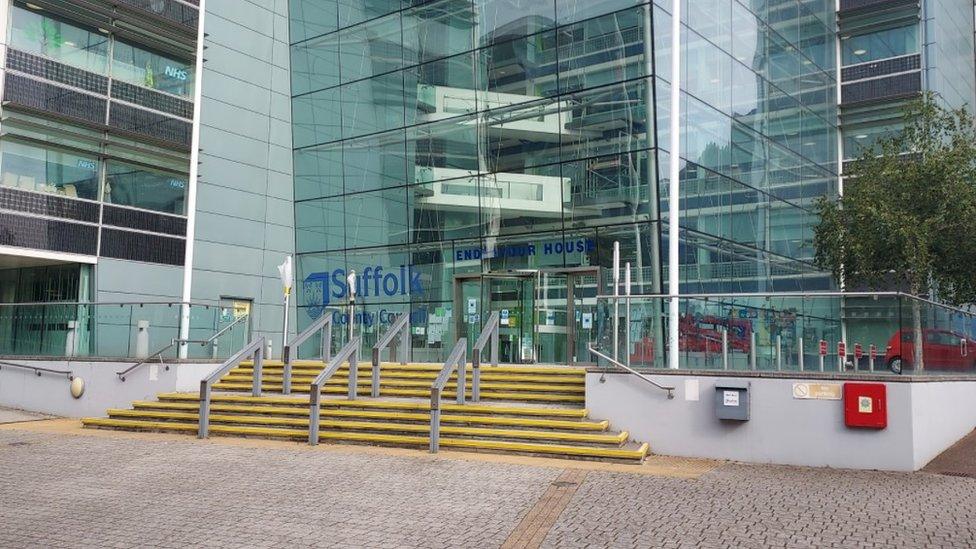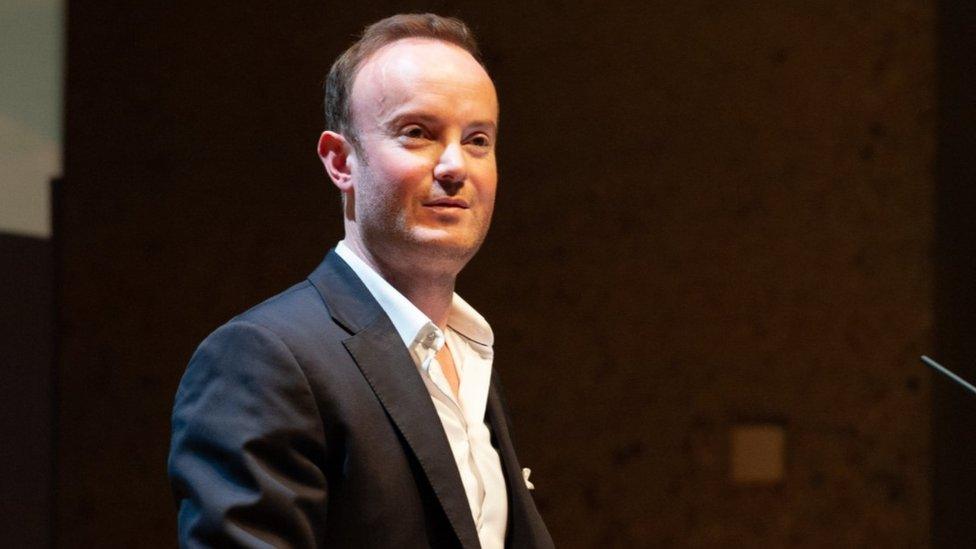Suffolk County Council publishes first carbon emissions 'budget'
- Published

The carbon budget will aim to measure emissions from the council's buildings
A local authority has published it first carbon "budget" to monitor its pledge to be a net-zero carbon producer by 2030.
Suffolk County Council declared a climate emergency in 2019 and aimed to cut and offset its emissions.
Its carbon budget collates emissions across the whole organisation to produce a "baseline" against which future emissions can be measured.
The council's deputy leader Richard Rout called it "an historic budget".
Data published ahead of the cabinet's discussion on the matter next week indicated that the 2020-21 figure was 17,742 CO2 equivalent (CO2e) tonnes compared to 25,138 in 2019-20.
The baseline, which will include staff travel and waste produced, plus emissions from council buildings and where staff are working from home, will be reported annually to try to ensure carbon reduction measures are working and establish what further measures were needed, the Local Democracy Reporting Service said.
The carbon budget is due to be produced each year at the same time as the financial budget, with at least one review midway through the year.

Richard Rout said it would not be possible to eliminate all emissions but it aimed to offset them by tree planting or producing its own renewable power
Opposition councillors have said the financial base budget and carbon budget need to be produced together and informed by one another. They have also questioned where the checks and balances will be to ensure it is working.
Mr Rout, who is responsible for finance and environment at the Conservative-run council, said it was "the first full budget of its kind that the council has ever produced".
"Becoming a net zero organisation by 2030 is incredibly ambitious, but I'm committed to doing everything we can to realise that vision," he said.
"It's incredibly challenging to have an exact figure for every last gram of CO2 that the council emits."
Andrew Stringer, leader of the Green, Liberal Democrat and Independent group, said they were disheartened as it felt the environmental impact would not be known until it was too late.
Green councillor, Annette Dunning, added that she was "concerned about the lack of performance measures".
"We need measures in place to ensure this council is accountable in becoming carbon neutral by 2030," she said.
Among measures that are already in place to try to reduce carbon output have been a £12.8m fund dedicated to decarbonising buildings, continuing remote digital meetings to reduce staff travel and upgrading street lights with LED alternatives.

Find BBC News: East of England on Facebook, external, Instagram, external and Twitter, external. If you have a story suggestion email eastofenglandnews@bbc.co.uk, external